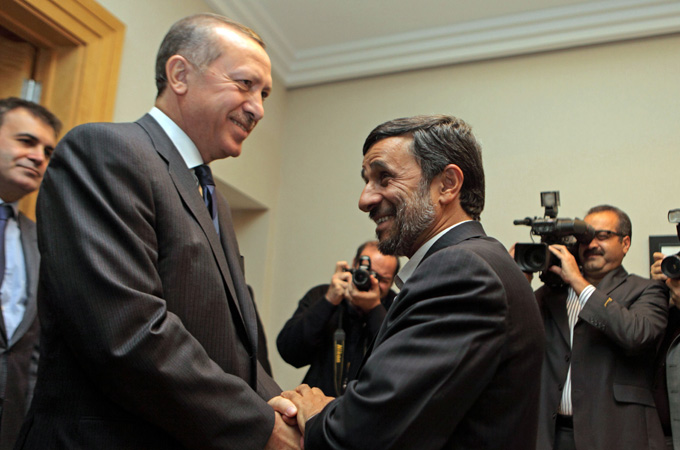ECO summit kicks off in Turkey
Leaders of central Asian states attend group summit in Istanbul to discuss regional trade and economic development.

 |
| Turkey is hosting a range of high-profile political leaders from the region during the 2010 ECO summit [AFP] |
Turkey is hosting leaders from Iran, Pakistan, Afghanistan and Central Asian states at an economic summit which illustrates Ankara’s growing regional influence.
The summit of the 10-member Economic Co-operation Organisation (ECO) that started on Thursday is expected to produce few concrete results, but its significance lies in the attendance of some of the region’s high-profile political leaders, among them Mahmoud Ahmadinejad, Iran’s president.
Ahmadinejad, who on Wednesday held one-to-one talks with Tayyip Erdogan, Turkey’s prime minister, is in Turkey a month before planned nuclear talks with six major powers in Istanbul.
Turkey, a rising Muslim democracy that has applied to join the European Union, has cultivated its eastern neighbours to consolidate its position as a link between Europe on the one hand and the Middle East and Central Asia on the other.
| ECO SUMMIT | |||||||||||
|
Turkey will use the summit to showcase its growing diplomatic assertiveness and project a foreign policy it defines as having “zero problems with neighbours”.
Tension is high between Islamabad and Tehran after a mosque bombing in Iran, but Ahmadinejad will be joined at the ECO summit by Asif Ali Zardari, the Pakistani president.
Hamid Karzai, the president of Afghanistan, which is fighting al Qaeda and the Taliban, will also attend.
“Turkey is providing a model for these countries in the region, many of which are going nowhere in terms of social peace and economic prosperity,” Semih Idiz, a Turkish foreign analyst for the newspaper Milliyet, said.
“Turkey provides an alternative of political stability, economic growth and regional peace.”
In the past decade, Turkey has transformed itself from a financial basket case on the periphery of Europe into one of the world’s best-performing economies which now stakes a claim to a regional leadership role.
The summit will be held at an Ottoman palace on the European shore of the Bosphorus, overlooking the Asian side.
‘Eurasian vision’
In a preparatory meeting of foreign ministers on Friday, Ahmet Davutoglu, Turkey’s foreign minister, said Turkey’s “Eurasian vision” was one of close regional ties and co-operation.
“Our objective is to strengthen the links between Europe and Asia through energy and transportation corridors and by creating new dynamics for co-operation,” he said.
Henri Barkey, a Turkey expert at the Carnegie Endowment for International Peace in Washington, said Turkey saw itself as a global player and was using ECO summits to demonstrate its influence.
“Most of these countries in ECO are mired in domestic problems and Turkey’s interests are far more global. Turkey does not need ECO, but Turkey does not lose an opportunity to show it’s central to world politics,” Barkey said.
US and Western allies have praised Turkey’s role in exporting democracy and economic prosperity in the region, but some allies are concerned the Muslim NATO member might be undermining international efforts to isolate Iran.
The big powers want Iran to halt its uranium enrichment programme, which they suspect is a cover for an effort to build a nuclear arsenal.
Iran says it has the right to enrich uranium for civilian use and does not want atomic weapons.
Turkey says it does not want nuclear weapons in the region and the solution to the dispute should be diplomatic.